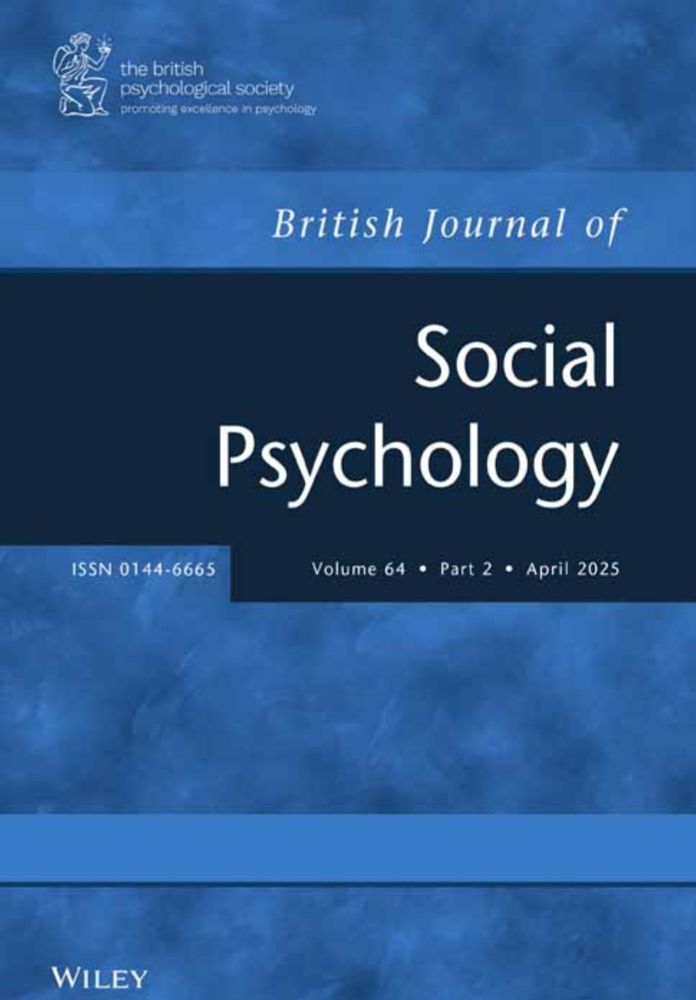
New research by @eval80.bsky.social and @paul-hph.bsky.social highlights a key role for emotion in translating pro-environmental values into actions 👇
🔗 journals.plos.org/climate/arti...
@paul-hph.bsky.social
Senior Lecturer (Associate Professor) at the University of Essex, Department of Psychology

New research by @eval80.bsky.social and @paul-hph.bsky.social highlights a key role for emotion in translating pro-environmental values into actions 👇
🔗 journals.plos.org/climate/arti...
I recommend listening to Matteo, who’s a great friend, and a great scientist, even though I don’t understand half of what he says about stats
16.10.2025 19:04 — 👍 3 🔁 1 💬 0 📌 0
🤔 (fully agree with your suggestion)
08.09.2025 20:46 — 👍 1 🔁 0 💬 0 📌 0
"The results show that voters do not assess racial/ethnic minority candidates differently than their majority (white) counterparts." link.springer.com/article/10.1...
01.08.2025 16:22 — 👍 5 🔁 0 💬 0 📌 0
This isn't backed by research:
"We find that the average effect of being a woman (relative to a man) is a gain of approximately 2 percentage points." www.journals.uchicago.edu/doi/abs/10.1...
New paper: Across 3 experiments, we found that people react more positively to a happy (vs angry) voice - no surprise here. But more interestingly, highly empathic people were especially drawn to happy voices. doi.org/10.1037/emo0...
13.06.2025 08:32 — 👍 2 🔁 0 💬 0 📌 0
An infographic titled 'Far More Unites Us Than Divides Us' showing the percentage similarity in common values between different groups. Six bell curves display high similarities: 84% between countries, 91% between religions, 96% between rich & poor, 96% between genders, 96% between age groups, and 97% between education levels. The data is from a 2019 Hanel study of 85,000 people. The curves are shown in green on a blue gradient background.

Text reads "The world population seems ever more divided and polarised, disaffected, separated. It’s us vs them, right? Well…A study of 86,000 people reveals that when it comes to morality, human values and trust, people across all backgrounds and all levels of society, almost completely agree with each other. By gender, age, education, income, religion - the similarity of attitudes between groups is greater than 90% on average. If you focus on differences, you risk only seeing differences.
Far more unites us than divides us. A study of 86,000 people reveals remarkable similarity in moral attitudes, values and trust across all ages, demographics & groups
Study psycnet.apa.org/fulltext/201...
OG beautifulne.ws/781 #bnews

Interesting study: "trust in political institutions is eroded when there is overrepresentation of those educated in the private sector."
Which is the case: "privately educated individuals—who represent >7% of the [UK] population but 30%–70% of the political cabinet" doi.org/10.1111/bjso...

Encouraging paper on how political repression backfires: Positive link between perceived repression and anti-government violence. "Randomized experiments revealed that thoughts about repression also motivate participation in anti-government violence."
royalsocietypublishing.org/doi/10.1098/...